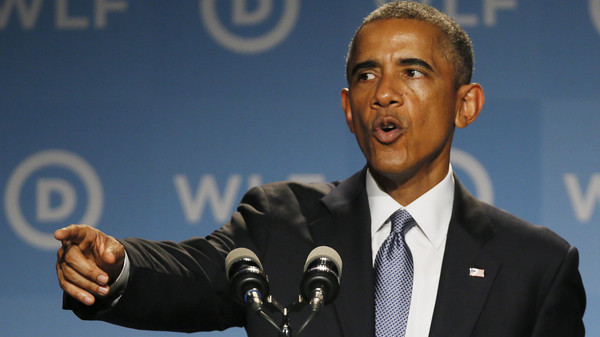How Obama’s Arab Spring created the Islamic State
By: Raymond Ibrahim /10/6/2014/Human Events
Over a decade ago, the U.S. conquered Iraq; its military and intelligence were on the ground for years with autonomy. In other words, U.S. influence and authority was more pronounced in Iraq than probably any other Muslim country in the world. And yet it is in this one Muslim nation, where the U.S. had most authority, where U.S. blood and treasure were spent, that the absolute worst Islamic terrorist group—the Islamic State—was born.
Coincidence?
Or is this too related to the great “Arab Spring” failures of the Obama administration? Consider: Obama was repeatedly warned that withdrawing U.S. troops from Iraq would lead to something exactly like the Islamic State—with all the atrocities that have become synonymous with that name.
Indeed, arguing against early troop withdrawal, Obama’s predecessor, George W. Bush, once made the following now prophetic remarks:
To begin withdrawing before our commanders tell us we are ready would be dangerous for Iraq, for the region and for the United States.
It would mean surrendering the future of Iraq to Al Qaeda.
It would mean that we’d be risking mass killings on a horrific scale.
It would mean we allow the terrorists to establish a safe haven in Iraq to replace the one they lost in Afghanistan.
It would mean we’d be increasing the probability that American troops would have to return at some later date to confront an enemy that is even more dangerous.
The point here is not to “side” with Bush—the idea of transporting “democracy” to an Islamic country was ill-conceived from the start—but rather to demonstrate that Obama was thoroughly warned what troop withdrawal would lead to: the Islamic State. The same U.S. military and intelligence sources that allowed Bush to make that prescient statement also shared their assessments with Obama.
Yet Obama withdrew anyway. In December 2011, Obama declared the Iraq war a success and pulled out American troops. nd, to the eyes of most Americans, things were relatively quiet—until, of course, the world heard that a head-chopping, infidel-crucifying, mass-murdering “caliphate” had “suddenly” arisen.
Was Iraq also part of the euphoria of the Obama-endorsed “Arab Spring”?
Recall that final troop withdrawal from Iraq occurred at the height of the Arab Spring when the Obama administration was simultaneously betraying key U.S. allies in the Islamic world such as Egypt’s Hosni Mubarak.
If the U.S. was not going to stand by its former “secular strongmen,” but instead was willing to hold hands with their traditional enemies, the Muslim Brotherhood and other Islamists, why should it have supported Iraq’s Nouri Maliki?
After all, the narrative adopted by the Obama administration was that the Arab people were breaking the bonds of authoritarianism, and the U.S. administration was supporting their efforts, most notably by turning its back on longtime allies in the name of “democracy.”
And surely Maliki was seen as the greatest of all “U.S. puppets,” a divisive figure that stood in the way of the Sunni Spring?
Despite the narrative that Maliki was for complete troop withdrawal, “it’s well-established that behind closed doors, he [Maliki] was interested in a substantial U.S. presence.” Indeed, theNew York Times reported that Joe Biden had said that “Maliki wants us to stick around because he does not see a future in Iraq otherwise.”
More specifically, in a 2012 debate with Mitt Romney, Obama decried the presence of any American forces in Iraq (video here), adding that
You’ve got to be clear, both to our allies and our enemies, about where you stand and what you mean. Now, you [Romney] just gave a speech a few weeks ago in which you said we should still have troops in Iraq. That is not a recipe for making sure that we are taking advantage of the opportunities and meeting the challenges of the Middle East.
What do Obama’s assertions mean?
Was Obama being “clear, both to our allies”—the Sunni Islamists whom he allied with during the Arab Spring—“and our enemies”—the Arab autocrats who stood in their way?
Was Obama showing both groups “where you [U.S. president] stand and what you mean”?
Was troop withdrawal Obama’s way of “taking advantage of the opportunities”—riding the Arab Spring wave—“and meeting the challenges of the Middle East”—winning Muslim hearts and minds by abandoning autocrats?
Here, then, is another perspective on the rise of the Sunni Islamic State in Iraq—one closely connected to the many other Arab Spring failures of the Obama administration






















